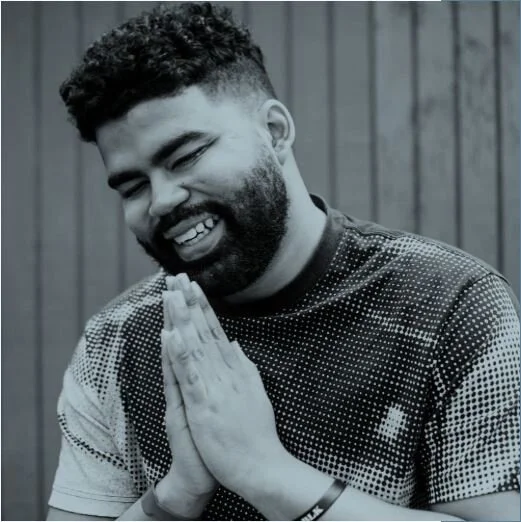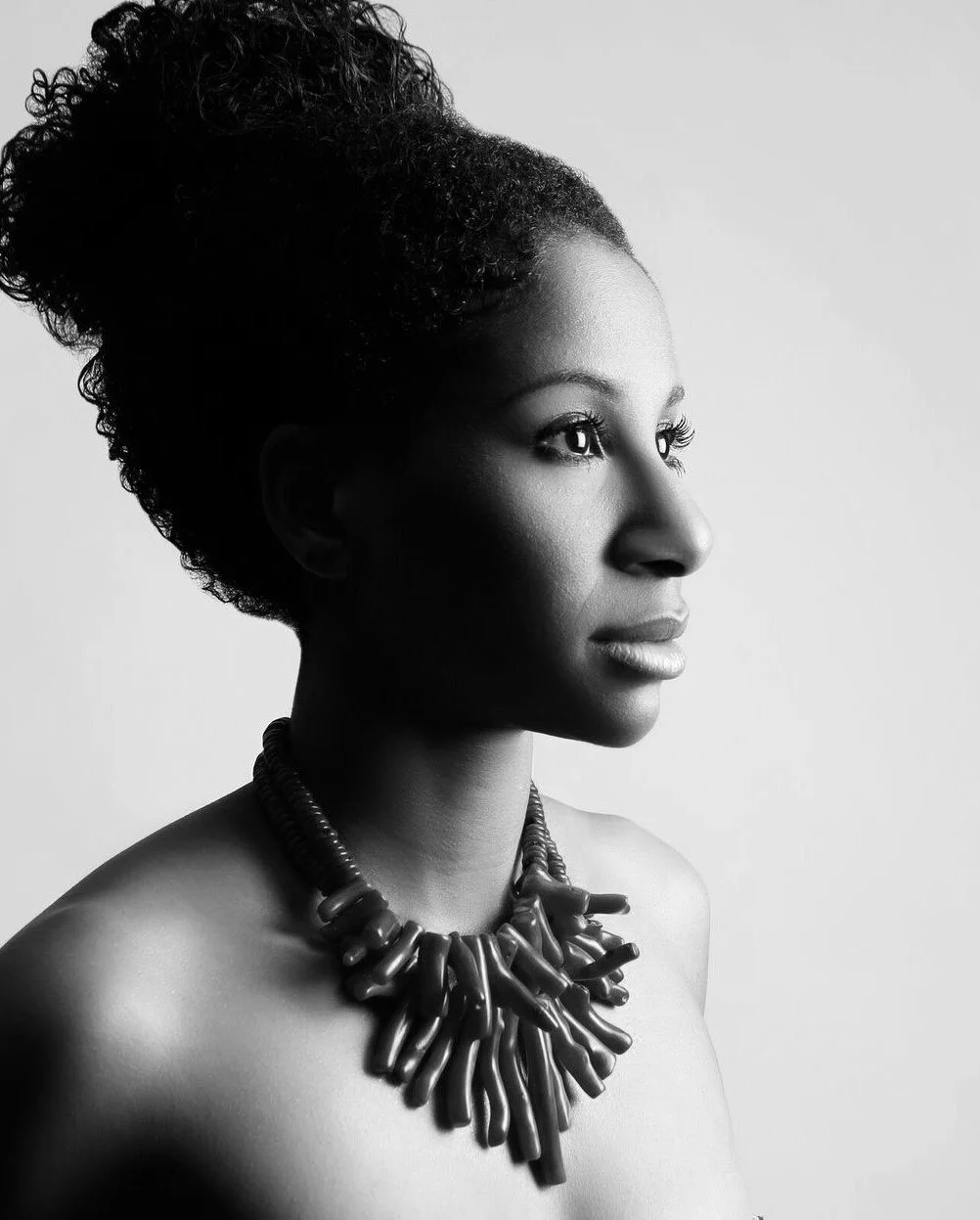JULIAN RANDALL
Photo by Johnny Lee Chapman
Julian Randall is a Living Queer Black poet from Chicago. He has received fellowships from Cave Canem, CantoMundo, Callaloo, BOAAT, Tin House and The Watering Hole. Julian is the recipient of a Pushcart Prize. Julian was the winner of the 2019 Betty Berzon Emerging Writer Award from the Publishing Triangle and named the 2015 National College Slam Best Poet. His poetry has been published in New York Times Magazine, Ploughshares, Sixth Finch, Tin House and POETRY and anthologized in The Breakbeat Poets Vol.4, Nepantla and Furious Flower. He has essays in Vibe, Black Nerd Problems and other venues.
Interview by Isabelle Sakelaris
You were the 2015 National College Slam (CUPSI) Best Poet. You also write a number of poems after musicians. Here I am thinking of “Variation on a Theme of Genetics,” for example. How do sound and music figure into your page poems? Is your writing process different for a slam poem and a poem on the page? What about the process of reading and recitation?
Oh sound is always a massive factor in my writing because I’m such an auditory person by nature and by training. While I’m writing I tend to keep going until something sticks and won’t. Then I half read, half chant the poem back to myself until the next line comes to me. I edit as I’m doing this, sanding down the beats in the words until they’re what I’m actually aiming for. This is also the reason I don’t write in public, it makes people nervous to see that if they don’t know what I’m up to haha!
“Slam Poems” are form poems, I’ve prepared and delivered a TED Talk on this and I am prepared to die on this hill. So, the composition is different, but in the way I approach a sonnet a little different than I would a Ghazal than I would an essay!
Your first book, Refuse, includes many poems that explore lineage in terms of both form and content. How important is lineage to you? Living through it? Working through it?
I don’t have a very big family. Growing up in my home — which moved between houses and apartments and cities a good amount when I was really young — it meant that it was just me and my parents. What I mean to say is that my family are one of the only real constants in my life and so lineage, how that constant shifts and changes across the breadth of history and why has always been pretty central to the lens of how I view the world.
Most recently before I moved up here to Minneapolis I lived in Mississippi because there were generations of my family that were hard to account for because systemic racism is a state of ongoing war on memory and the Black archival. I’m working through it, always and from multiple angles; trying to get the song right.
Refuse, University of Pittsburgh Press, 2018
Many of the poems in Refuse are bound up in images of the body and of injury. In “Friday Night Lights #51” you write, “the body is a building.” There are also references to the body as a signal, a site of desire, and as classifiable. Would you please speak on the speaker’s relationship to the body, and why that relationship is important?
A thing to know is that until about two months ago I was in a state of injury I’d been in for a decade. I’d never had or been able to afford or feel like I could afford a professional therapeutic massage, so I just was in pain, all the time. It stems back to that time in my life where I worked out way too much in pursuit of way too little. But that’s high school right? All the pieces matter to you, your conceptualization of stakes is just so different. I think also the speaker is wrestling with these contrary truths of conceptualizing a life as a U.S. President while also treating his body with the expectation that it will come apart long before he’d even be eligible. What is it to try to strengthen and tear instead? To try to preserve and try to die in the course of the same life?
In “The Academy of Acceptable Loss,” you write, “I would like to be seen. For that I’d trade my virginity, I’d trade anything on my body.” It seems, in this case, that loss is an inevitable part of desire. Do you agree? Why is that significant?
You’re catching me in a pessimistic wave with my relationship to desire so yeah I’d say that desire comes with the conceit of loss. But I think where the speaker of this poem surprised me was how he sees desire so…transactionally at such a young age. Loss is one thing, inevitably if you love something or someone you are conceding that eventually you will die and that relationship will be lost to some degree if you make it that far. And that may not be your desire and that’s cool too and so the loss takes a different form. But I think what is frightening, intriguing and shameful about the speaker in “Academy” is that he is keenly aware that his social capital and his visibility isn’t high and he thinks trading away his virginity will change that. It’s still the idea of the body as currency and how that plays into the way bodies are racialized. Not feeling that he can imagine and live and desire something better for himself still kinda breaks my heart when I look at that poem. I’m not sure how long a body can sustain that kind of bleakness.
Another issue which arises in your poems is that of taxonomy. At times, classification can be restrictive and disempowering. But can the naming aspect of taxonomy also be a way to begin the process of healing from trauma, or to normalize that which others unjustly reject or disparage? How important are classification and naming to your work, and how do you define the differences?
As someone whose name is perpetually mispronounced, I’d say naming became something of an obsession of mine early. I’m never without it honestly, the instinct to name, to define; the tension present in my body to defend that name once offered. Within Refuse I was also very much in a mode where there were elements of my life I needed to reckon with, to set straight, to name what happened in a way that it couldn’t be wrested away from me. That’s a kind of healing, though it’s gone in different directions than I had imagined!
In your poem “Wasn’t the Minotaur Buried Horns First: Vulnerability and Identity in the Mythic Body,” you write of the mythic body as a site for contemporary identity politics. The implication in this poem in particular is that the mythic body is often viewed as monstrous. Can the mythic body ever be a site for empowerment? What about writing the mythic body?
Definitely, I think there’s tons of sites where we do believe in that (not least of which of course being superheroes and the many movies about them). Writing the mythic for me right now has taken an interesting turn since I’m working on a Middle Grade Novel where a twelve-year-old director finds an island of Dominican mythos and magic and is trying to reckon with and accept power to change the course of the island’s history (which parallels Trujillo-era Dominican history in some cool ways). Writing the character Pilar and her friends has been a different mythic body but it’s still the mythic just one I was never formally taught.
The same poem, by nature of the myth it engages, concerns ambition. Is ambition important? Can it ever be dangerous?
Oh for sure, the book opens with Icarus because that mythic ambition and how it relates to father and son kills Icarus, and it nearly killed me before I wrote the book. That being said, my ambition with my projects is a lot of what keeps me alive these days, in all honesty. The world is bleak in many ways, both personally and at the macro level. I haven’t really felt like myself for very long since July, I have runs of a couple good days but overall I feel mostly unmoored and I’m trying to navigate that. But I have really high hopes for the books I’m working on right now, my ambitions for those and how great they could be keep me feeling my most alive when I’m sitting with them.
In the first poem of the collection, “Icarus imposter Syndrome,” you write that good myths rely on the suspension of disbelief. Can poetry, then, also be a form of mythmaking? Why does that matter?
For sure, as you’ve been nice enough to figure into your writing of these questions how poets make speakers. Those speakers may be entirely fictional (though mine aren’t) and they may be based in memory and observation (imperfect at best, which is honestly a blessing since I am writing a character right now with perfect memory and it seems pretty awful). But yes, all this to say that your speaker is not yourself. That’s a mythmaking, I think, and it’s my favorite one so far.
Check for updates on Julian’s site, and follow him on Twitter and Instagram. Buy Refuse here.
You might also like our interviews with these writers:
sabelle Sakelaris is an art writer and aspiring poet who lives and works in New York City.







